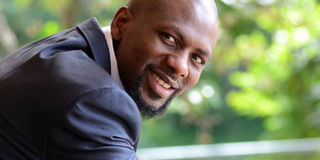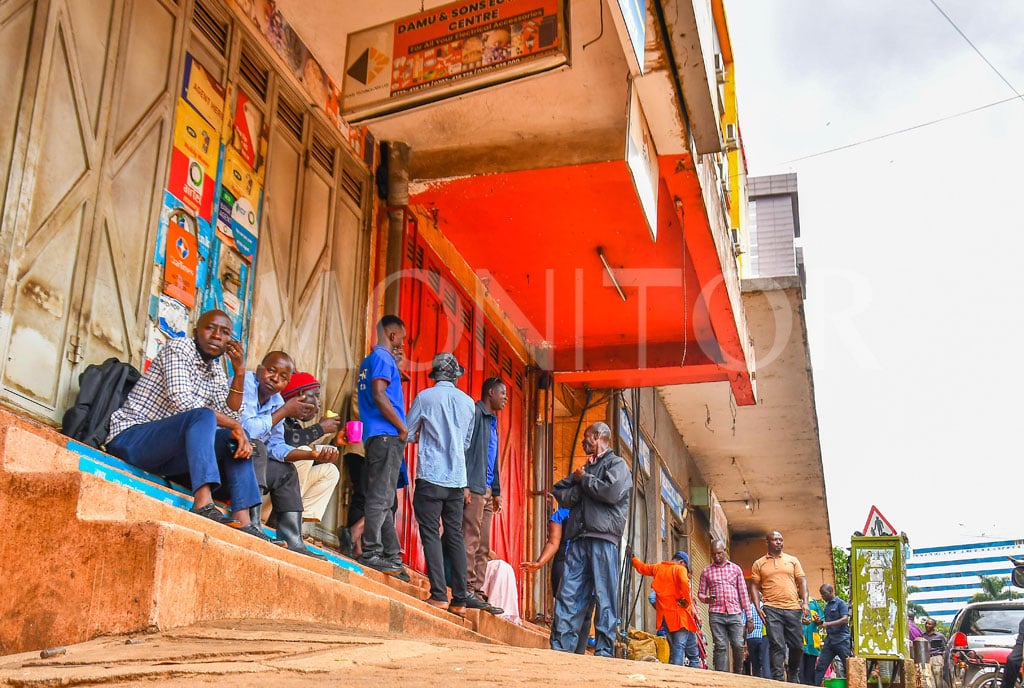Advancing the African cause through drama

Actor Fabian Adeoye Lojede (R). He advances the African spirit in his acting roles. Courtesy photo
What you need to know:
Fabian Adeoye Lojede. He is a Nigerian actor living in South Africa, better known for his role as the villainous sibling Bola Abayomi in the hit pan-African TV series, Jacob’s Cross. Lojede also starred as Femi in the social-consciousness film Man On Ground premised on the 2008 xenophobic attacks in South Africa. Moses Serugo spoke to the visiting actor-cum-producer about his work on small and big screens
You are mostly known across the continent for portraying the slighted brother who is denied his oil inheritance in Jacob’s Cross. How did you land that role?
I learnt about the role through my friend, Akin Omotoso (Kaya Motene of Generations), who thought that it might be something I would be interested in. Before that, I did not like most of the roles I had been offered, mostly in American feature films being shot in South Africa because they reinforced certain stereotypes I did not subscribe to. But Jacob’s Cross was different, which is why I agreed to do it.
The series is about Africans taking charge of their resource wealth, especially oil. Why was it important to treat such a subject cinematically?
At the time the show was conceptualised, there was quite a lot of debate over China coming into Africa and while the debate has grown since that time, Jacob’s Cross was really apt whether you agree with the perspectives in the series or not. We need more content that speaks to our cultural and social issues, which is why I do not have issues with the character I play because it reflects a lot of the things that are wrong on the continent. We also need content that is entertaining and not necessarily preachy, which is what Jacob’s Cross attempted to do.
Your role sees you kill your father and slap your mother at one point, which may be seen as rather unbecoming behaviour bordering on the extreme. Did you ever question that with the show creators?
I do not think those were extremes in the context of the world or story in which the series is set. You could create an analogy of a guy killing his father as being similar to a leader killing his people and taking their resources. That can also fit in the political context of the continent where one tribe will kill another yet they are under the same flag or people from the same tribe killing each other because their tribes-mate is either Muslim or Christian. So in that context, it is not extreme.
Why was it important for you to do Man on Ground?
I was involved in the project conceptually beyond being an actor. The movie’s three producers; director Akin Omotoso, lead actor Hakeem Kae-Kazim and myself decided after the xenophobic attacks in South Africa in 2008 that we would like to attach a creative voice to a couple of issues and not specifically just around xenophobia. We wanted to use the film as an analogy for the things that had gone wrong in Africa in terms of Black on Black violence. It was a passion project and I am drawn to such films because you are not thinking about the money but getting the project done. We put in a bit of our own money, got some through crowd-funding and made the best film we possibly could, one that we took to top film festivals in Dubai, Berlin and Toronto to help generate as much discussion. I would do it again.
You have mentioned before that your dream role would be to play Thomas Sankara (former Burkina Faso president, 1983-1987). Why him?
I love Africa and for me, Sankara was an ultimate African leader. And that is not because he was perfect but rather what he stood for. And at the time that he stood for, it was way ahead of his time. He really loved his people and when you love your people, you will always do the right thing, which is something most African leaders lack. If you have noticed there are more films about African villains than heroes. We have been made to believe that Africa is full of despots and that the only leaders are the Mobutus and Abachas, caricature leaders Hollywood just loves to project yet even with their Musolinis and Hitlers they project the Churchills and Kennedys of this world more.
What more in terms of value-addition would you like to do for African cinema beyond being a bankable actor?
I like to tell stories about issues concerning Africa and if you have noticed, people are reading less and not getting that many insights from books. The music or films that preoccupy children these days do not carry the kinds of messages they need. I believe the preservation of any society is in the youth and not just in infrastructure because if you do not build the mind, you have not built anything. My producer partners and I would like to tell as many African stories as possible, enlighten the continent and build capacity. We try to ensure that on our set, we try to employ as many Black people as possible to give them a chance because the more of us the better.
Who is Lojede?
Lojede is Nigerian born pan-Africanist, producer, actor, director and voice over artist. He is well known for his role as bad boy “Bola Abayomi” on Africa’s first pan-African drama Series, Jacob’s Cross.
Lojede holds a Bachelor’s degree in Psychology from the University of Ibadan, Nigeria. He is a creative strategist and production consultant.
He has worked extensively in South Africa since 2003 on creative development, execution and production of major pan-African campaigns. He has also worked as a creative consultant for a number of agencies and production houses on Pan-African campaigns Velocity Films, FCB Africa, Leo Burnett SA EXP Momentum Africa among others. He is a communications expert with strong production understanding.
From m.afrinolly.com




